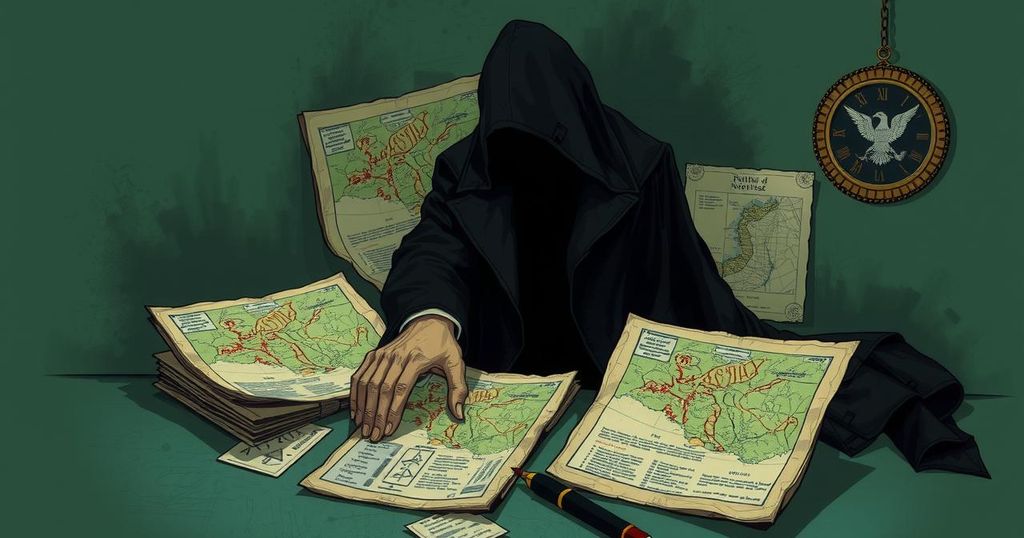Politics
ADDIS ABABA, AFRICA, AFRICAN UNION, AU, CENTRAL INTELLIGENCE AGENCY, CIA, CORRUPTION, DEMOCRACY, ETHIOPIA, GHANA, JOHN DRAMANI MAHAMA, KW, KWAME NKRUMAH, MAHAMA, NK, NKRUMAH, OAU, OSAGYE, OSAGYEFO, REGIONAL COOPERATION, STATES OF AFRICA, UNITED NATIONS, UNITED STATES OF AFRICA, UNITED STATES OF AMERICA, US, US INTELLIGENCE, WEST AFRICA
Jamal Walker
0 Comments
Five Reasons the CIA May Have Instigated the Overthrow of Kwame Nkrumah
President John Dramani Mahama revealed that declassified CIA documents indicate the agency orchestrated the overthrow of Ghana’s first president, Kwame Nkrumah, on February 24, 1966. Potential motives for this intervention include Nkrumah’s advocacy for African unity, the publication of his book on neo-colonialism, ties with socialist states, non-alignment during the Cold War, and his status as an iconic figure for global liberation movements.
On Ghana’s 68th Independence Day, President John Dramani Mahama revealed that declassified US intelligence documents indicate the Central Intelligence Agency (CIA) was responsible for the overthrow of Osagyefo Dr. Kwame Nkrumah on February 24, 1966. While the American government has not yet commented on this assertion, it is apparent that there were substantial reasons for the CIA’s intervention, particularly considering the interests of the United States at that time.
One critical motive for the CIA’s action against Nkrumah may have stemmed from his vision for a United States of Africa. Nkrumah fervently advocated for African unity, believing that the continent’s prosperity hinged on its ability to unite as “one people and one nation.” This belief was a consistent theme in his speeches at international forums, asserting that Ghana’s independence was intrinsically linked to the liberation of the entire continent.
Additionally, Nkrumah’s publication of the book “Neo-Colonialism: The Last Stage of Imperialism” in 1965 could have raised alarm among US officials. In this work, he argued that while nations such as Ghana had achieved formal independence, neo-colonialism persisted, allowing external entities to exploit Africa’s resources. This perspective displeased the U.S. government, leading them to cancel appearances of prominent officials, like Jacqueline Kennedy, alongside Nkrumah.
Nkrumah’s close ties with socialist powers, notably the Soviet Union and Cuba, also contributed to his vulnerability. His efforts to secure a nuclear reactor provoked apprehension within the U.S. and its allies, culminating in support for the coup that dismantled his government. The Cold War context further complicated his position, as his non-aligned stance alienated him from both the Eastern and Western blocs.
Moreover, Nkrumah emerged as a symbol of liberation for many around the world, capturing the admiration of leaders and activists, including prominent civil rights figures from the United States. His successful struggle for Ghana’s independence resonated deeply with movements against oppression globally.[BAI/AE – Ghanaweb] This made him a target, as establishing such a symbolic figure posed a threat to more established interests during a tumultuous era.
In conclusion, several factors may elucidate the CIA’s covert role in the removal of Dr. Kwame Nkrumah from power. His promotion of African unity, publication criticizing neo-colonialism, alliances with socialist nations, and non-alignment during the Cold War positioned him as a contentious figure in global geopolitics. Additionally, his status as a beacon for freedom fighters globally underscored the potential threat he posed to established powers. These elements collectively highlight the intricacies of international relations during this formative period in African history.
Original Source: www.ghanaweb.com




Post Comment